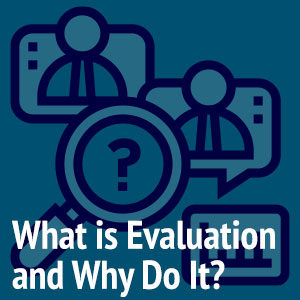
Recent revelations about Facebook and Cambridge Analytica’s use of personal data have raised serious concerns about internet privacy. It would appear that we inhabit a world in which privacy is increasingly under assault—not just from leering governments, but also from panoptic corporations.
Although the right to privacy in the US is not explicitly protected by the Constitution, constitutional amendments and case law have provided some protections to what has become a foundational assumption of American citizens. The “right to privacy” (what Supreme Court Justice Louis Brandis once called “the right to be left alone,”) is a widely held value, both in the U.S. and throughout the world. But why is privacy important?
In “Ten Reasons Why Privacy Matters” Danial Solove, Professor of Law at George Washington University Law School, lists ten important reasons including: limiting the power of government and corporations over individuals; the need to establish important social boundaries; creating trust; and as a precondition for freedom of speech and thought. Solove also notes, “Privacy enables people to manage their reputations. How we are judged by others affects our opportunities, friendships, and overall well-being.”
Julie E. Cohen, of Georgetown argues that privacy is not just a protection, but an irreducible environment in which individuals are free to develop who they are and who they will be. “Privacy is shorthand for breathing room to engage in the process of … self-development. What Cohen means is that since life and contexts are always changing, privacy cannot be reductively conceived as one specific type of thing. It is better understood as an important buffer that gives us space to develop an identity that is somewhat separate from the surveillance, judgment, and values of our society and culture.” (See “Why Does Privacy Matter? One Scholar’s Answer” Jathan Sadowski, The Atlantic, Feb 26) In the Harvard Law Review, (“What Privacy Is For” Julie E. Cohen, Harvard Law Review, Vol. 126, 2013) Cohen writes, “Privacy shelters dynamic, emergent subjectivity from the efforts of commercial and government actors to render individuals and communities fixed, transparent, and predictable. It protects the situated practices of boundary management through which self-definition and the capacity for self-reflection develop.”
Cohen’s argument that privacy is a pre-condition for the development of an autonomous and thriving self is a critical and often overlooked point. If individuals are to develop, individuate, and thrive, they need room to do so, without interference or unwanted surveillance. Such conditions are also necessary for the maintenance of individual freedom vs. slavery. As Orlando Patterson argued in his book, Freedom Vol.1 Freedom in the Making of Western Culture (Basic Books, 1991) freedom historically developed in the West as a long struggle against chattel slavery. Slavery, of course, entails the subjugation of the individual/person, and depends upon the thwarting of autonomy. While slavery may not fully eradicate the full and healthy development of the “self,” it may deform and distort that development. Autonomous selves are both the product of and the condition of social freedom.
Privacy, which is crucial to the development of a person’s autonomy and subjectivity, when reduced by surveillance or restrictive interference—either by governments or corporations who gather and sell our private information—may interfere not just with social and political freedom, but with the development and sustenance of the self. “Transparency” (especially when applied to personal information) may seem like an important feature to those who gather “Big Data,” but it may also represent an intrusion and an attempt to whittle away the environment of privacy that the self depends upon for its full and healthy development. As Cohen observes, “Efforts to repackage pervasive surveillance as innovation — under the moniker “Big Data” — are better understood as efforts to enshrine the methods and values of the modulated society at the heart of our system of knowledge production. In short, privacy incursions harm individuals, but not only individuals. Privacy incursions in the name of progress, innovation, and ordered liberty jeopardize the continuing vitality of the political and intellectual culture that we say we value.” (See “What Privacy Is For” Julie E. Cohen, Harvard Law Review, Vol. 126, 2013)
Privacy is not just important to the protection of individuals from governments and commercial interests, it is also essential for the development of full, autonomous, and healthy selves.
Resources:
“Ten Reasons Why Privacy Matters” Daniel Solove
“Why Does Privacy Matter? One Scholar’s Answer” Jathan Sadowski, The Atlantic, Feb 26, 2013
“What Privacy Is For” Julie E. Cohen, Harvard Law Review, Vol. 126, 2013
Orlando Patterson argued in his book, Freedom Vol.1 Freedom in the Making of Western Culture (Basic Books, 1991)
“Facebook and Cambridge Analytica, What You Need to Know as Fallout Widens” Kevin Granville, New York Times, Mar 19, 2018
“I Downloaded the Information that Facebook Has on Me. Yikes” Brian Chen, New York Times, Apr 11, 2018
“Right to Privacy: Constitutional Rights & Privacy Laws” Tim Sharp, Livescience, June 12, 2013
Surveillance Capitalism, Shoshone Zuboff
Listen to “Facebook and the Reign of Surveillance Capitalism” Radio Open Source
Read a review of Surveillance Capitalism
“How to Save Your Privacy from the Internet’s Clutches” Natasha Lomas, Romain Dillet, TC, Apr 14, 2018



